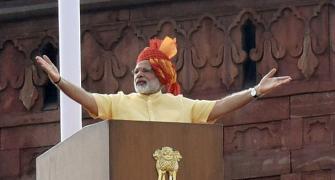The services sector had slipped into contraction in July as confusion caused by the GST rollout triggered a dip in new business orders.

Services sector in India suffered the second consecutive month of contraction in August as business activity and new work orders got affected by the Goods and Services Tax (GST), a monthly survey has found.
The Nikkei India Services PMI Business Activity Index improved slightly from 45.9 registered in July to 47.5 in August, pointing to a second successive decline in output.
A reading above 50 indicates expansion, while a score below this mark means contraction.
"Services acted as a drag on the private sector economy in August, with the reduction in business activity offsetting growth of manufacturing production," said Pollyanna De Lima, principal economist at IHS Markit, and author of the report released on Tuesday.
Though the downturn was less severe than in July, jobs were shed due to fewer workloads and backlogs also got accumulated.
The services sector had slipped into contraction in July as confusion caused by the GST rollout triggered a dip in new business orders.
In August as well, survey respondents said though the new taxation system and advertising campaigns are anticipated to support growth, there were worries about competitive pressures.
"The underlying trend for services is one of uncertainty. Businesses are holding back on investment, leading to falls in employment. At the same time, input costs are increasing and firms are unable to fully pass these on due to competitive pressures," Lima added.
Service providers retained an optimistic view towards the year-ahead outlook for activity, overall sentiment decreased in August.
Lima further said "it's not all doom and gloom" as business activity, new business and employment showed much slower rates of reduction than those recorded in the July survey.
The country's manufacturing sector moved back into growth zone in August on surge in new business orders after the GST-related contraction in July.
But this growth was insufficient to offset the contraction in services activity and accordingly the overall private sector output remained in the contraction zone.
The Nikkei India Composite PMI Output Index rose from July's 100-month low of 46.0 in July to 49.0 in August.
On the prices front, there was "muted inflationary pressures" in the services sector.
Companies said they paid more for beverages, food, fuel and paper and passing on to consumers only part of the additional cost burden, it added.
Photograph: Danish Siddiqui/Reuters









